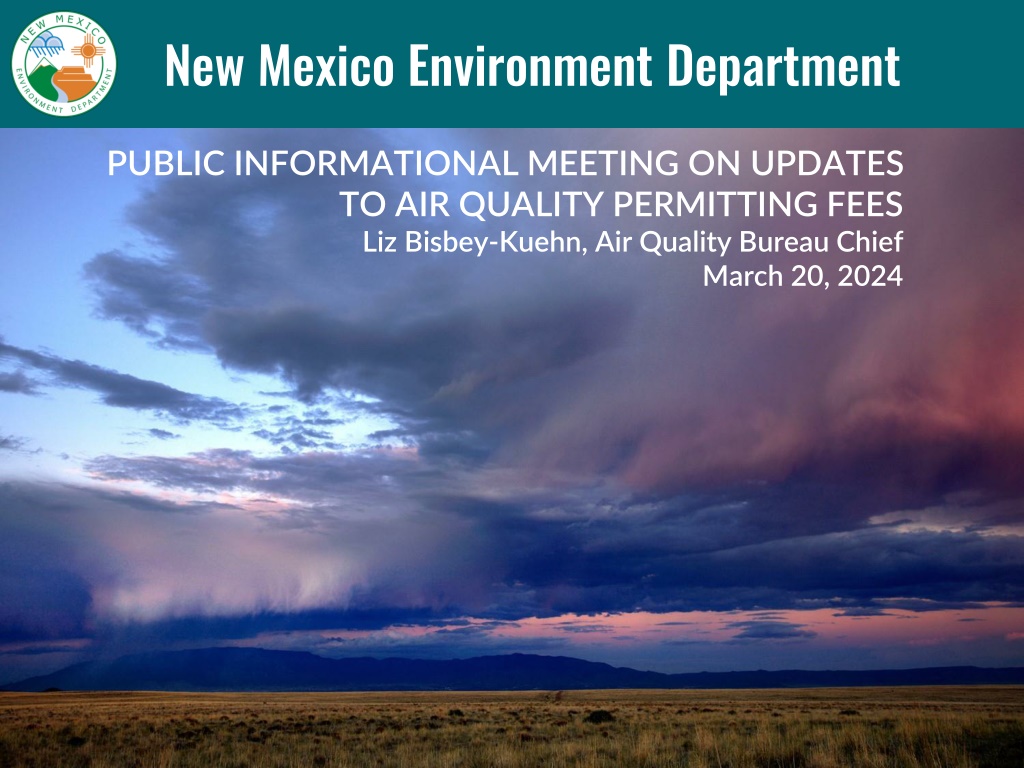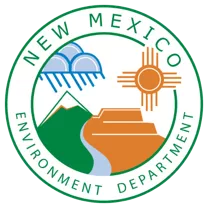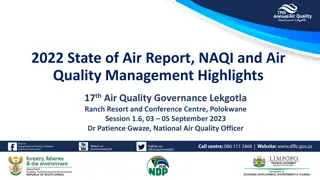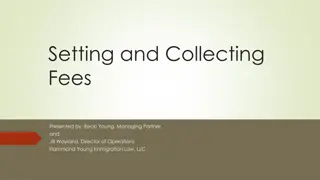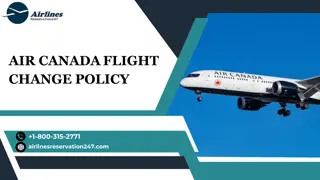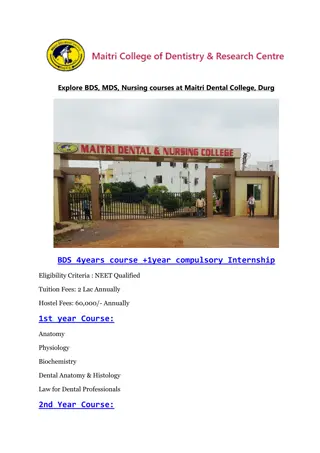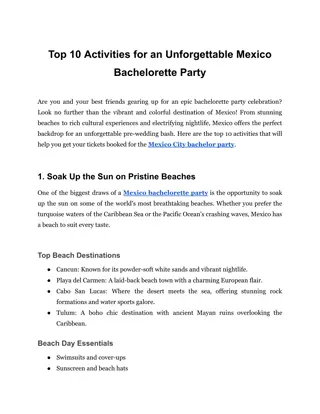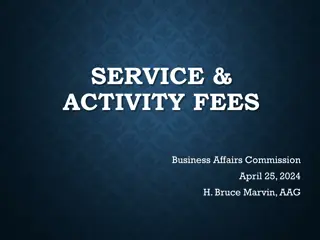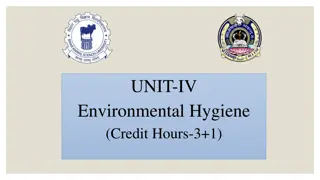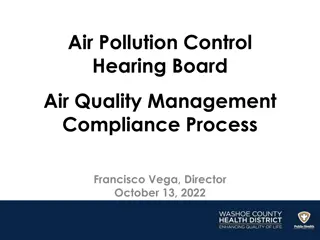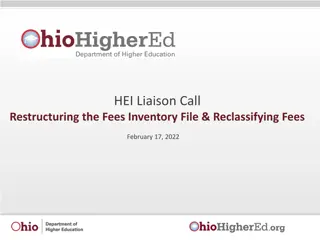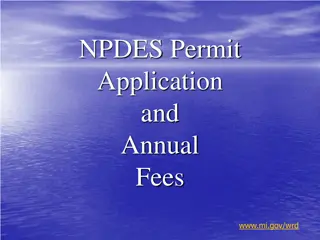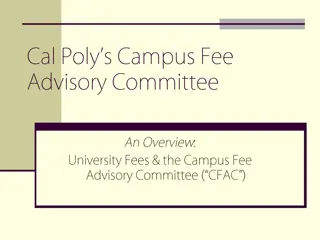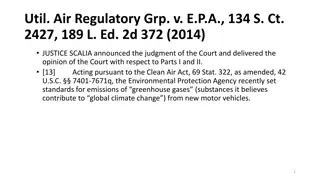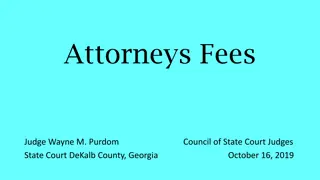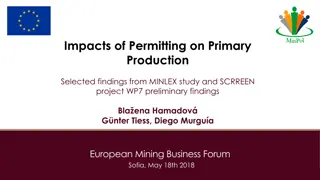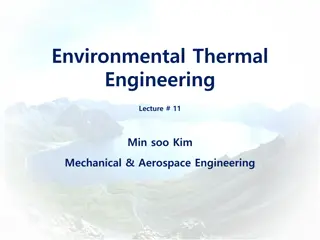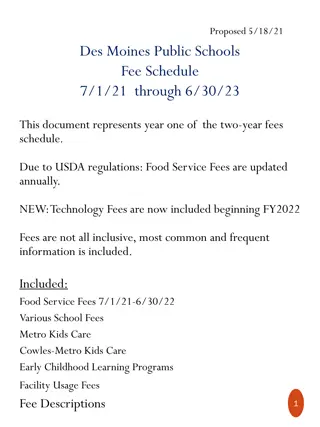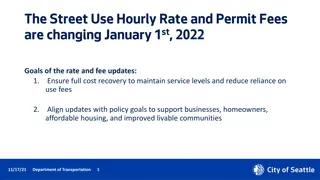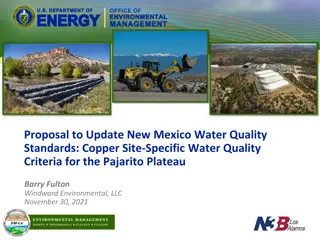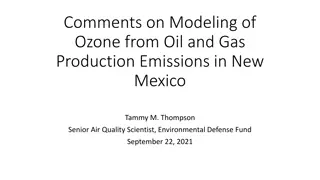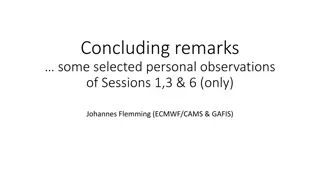Updates on Air Quality Permitting Fees in New Mexico
The New Mexico Environment Department is holding an informational meeting discussing the need for fee increases in air quality permitting. Reasons include the rise in complexity and number of oil and gas permit applications, increased workload requiring more staff and resources, and the benefits of increased fees in enhancing compliance, reducing emissions, and supporting economic growth.
Download Presentation

Please find below an Image/Link to download the presentation.
The content on the website is provided AS IS for your information and personal use only. It may not be sold, licensed, or shared on other websites without obtaining consent from the author. Download presentation by click this link. If you encounter any issues during the download, it is possible that the publisher has removed the file from their server.
E N D
Presentation Transcript
New Mexico Environment Department PUBLIC INFORMATIONAL MEETING ON UPDATES TO AIR QUALITY PERMITTING FEES Liz Bisbey-Kuehn, Air Quality Bureau Chief March 20, 2024
Why Fee Increases are Needed Increase in GCP-Oil and Gas permit applications of over 1600% between 2012 and 2023 754 GCP Oil & Gas applications in 2023 Resources needed for some types of review are underestimated by the current fee structure GCP-Oil and Gas Air dispersion modeling reviews Facilities applying for regular NSR permits are larger and have increased in complexity New state air rule 20.2.50 NMAC (Ozone Precursor Pollutants from the Oil and Gas Industry) and federal air regulations increased the complexity of permitting and compliance determinations 2
Why Fee Increases are Needed Additional staff and resources needed to keep pace with higher workload and to retain expert staff to evaluate more complex permit applications Current fees per ton for Operating Permits are far below the presumptive minimum fee developed by US EPA for assessing fees sufficient to administer an operating permit program. EPA presumptive minimum fee per ton = $61.73 Current New Mexico fee per ton = $38.47 New Mexico s current fee is just over the 25th percentile of all states Settlements collected by New Mexico s Air Quality Bureau for enforcement actions do not become part of the air program budget (sent to state general fund) 4
Benefits of Increase in Fees Increased permitting program capacity Supports growth of New Mexico s economy Decreases the time to process complex permit applications Enhanced technical assistance for applicants because each permit writer will have more time for review and resolution of issues, and changes to application Increased compliance and enforcement program capacity Emissions reductions due to increased oversight of compliance Increasing permit fees may have the secondary benefit of reducing emissions. Permittees may reduce emissions to stay below certain permitting thresholds (Title V or PSD). 5
Proposed Changes to Regulations Part 75 (Construction Permit Fees) Filing fee for permit applications, including Notices of Intent (NOI), increase from $500 to $2,000 dollars and becomes tied to increases in the Consumer Price Index (CPI) Increase in the number of points for some reviews under the point-based fee schedule: Reviews of submitted air dispersion modeling revised from 15 points to 30 points Reviews of General Construction Permits (GCP) for Oil and Gas revised from 10 points to 50 points Reviews for other GCPs (concrete, asphalt, aggregate crushers, etc.) remain unchanged Small business fee reduction continues Electronic payment option added to regulation 6
Proposed Changes to Regulations Part 71 (Operating Permit fees) Fee pollutants revised to include PM2.5 and PM10 and remove Total Suspended Particulates (TSP) and mercury. Fee only for emissions of PM10 or PM2.5 whichever is higher. Increase in the fee per ton for fee pollutants and Hazardous Air Pollutants (HAPs) Fee pollutants (NO2, SO2, CO, VOCs, PM10 or PM2.5 ) increased to $81 per ton Fee for HAPs increased to $250 per ton Administrative compliance cost for enforcement actions added Electronic payment option added to regulation 7
Estimated Change to Fees Type of facility Regular NSR Type of fee Air dispersion modeling fee Application Application Current fee $7,650 Proposed Fee $15,300 GCP-O&G Other (construction industry) GCPs Notice of Intent (NOI) All other types of facilities $5,100 $5,100 $25,500 $5,100 Application filing fee Application filing fee $500 $2,000 $2,000 filing fee credited against total permit app fee, so no net change in total cost $38.47 Title V fee pollutant Title V HAP $81 Annual fee per ton $244.51 $250 Annual fee per ton 8
Next Steps The Petition and Statement of Reasons for the proposed changes to the fee regulations was filed with Environmental Improvement Board on 3/7/24 as EIB 24-12. These documents are available on the webpage at https://www.env.nm.gov/opf/docketed-matters under the EIB heading On Friday 3/22/24, NMED will request a June hearing before the EIB. Other parties may participate in the hearing and submit Notices of Intent to present technical testimony. 9
Questions and Discussion Are there questions from the meeting attendees? Are there concerns or issues you d identified and would like to bring up at this point? Does your organization/group want to meet separately with us about the proposed changes to the regulations? Contact for questions and requests for additional meetings: EPD Division Director Michelle Miano michelle.miano@env.nm.gov or AQB Planning Section Chief Kirby Olson Kirby.olson@env.nm.gov and (505) 629-5107 10
